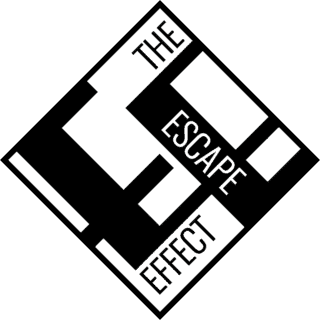As a Brit, I spent my childhood growing up watching the 90s TV staple game show The Crystal Maze, and programs like this started my passion for puzzles and set design. Inspired by the immersive environments custom built to different themes, it’s not dissimilar to what I do now as an escape room set designer. Here are some things I have learnt along the way.
Facing unique challenges
It was definitely a learning curve of how to practically apply my skills as a fine artist, and tailor this into a set designer role, where your work has to become considerably more durable as it’s experienced in a much more tactile way.
From concept sketch to completion, it’s a challenging but incredibly fun process. After initial brainstorms, which inform the direction of the design, the first step is exploring these ideas and sourcing images. This helps us to establish a better sense of the environment that we want to create, laying the groundwork for the initial concept sketches.
Adjustments during build-out
Over time, initial set design concepts are refined as we figure out the capabilities of both the team and the space, and research potential materials.
Prototypes are built in order to test their functionality when incorporating electronics, often resulting in changes to conceal the ‘behind the scenes’ components.
Puzzles also regularly dictate altering a props appearance. I approach set designs with an ideal scenario but with room to maneuver as this is just a part of the process as we progress, however I will fight for styling elements I feel are important.
No request is too weird
Every day is different, which definitely keeps things interesting as a set designer, especially when I get strange but entertaining requests of props to produce. During construction of A Knight To Escape, my internet search history was rather questionable after researching medieval torture devices, and my car has been used to transport a prop skeleton more times than the average person.
Durability through learning from mistakes
Players get increasingly destructive as the clock counts down, panicked by the looming deadline and desperately trying to find clues and keys. Because of this, it is almost guaranteed every prop and set will be damaged or destroyed at some point. Whilst nothing is indestructible, the better the durability, the longer a piece is able to function, and making spares are fundamental to ensure no downtime for the game.
Although the objective is always to make long-lasting props, sometimes you only learn from experience. Many materials or processes that we tried did not stand the test of time and my work has had to become increasingly more durable.
Whilst not as exciting as building a new game, upkeep is essential as surfaces and props get worn down quickly with regular handling. Armed with the knowledge of all the various techniques and infinite paint color combinations used in each room, touch ups are vital for keeping a game looking its best.
See our sets firsthand in one of our games
Are you ready to step into your adventure? Click the button below or give us a call at (855) 426-3372







